Need some advice QUICK please...
I'm in the midst of having 3/4" Brazilian Koa (Tigerwood) installed in my new home... almost 2000 sq ft of it. I say "in the midst" because I'm having a dispute with my installer that resulted in my requesting yesterday (Saturday) that his workmen STOP work until the issues can be resolved. Since today is Easter Sunday, I have a tiny bit of breathing room to get as educated as I can...
First, as a general rule in the industry, whose responsibility is it to ensure that subfloors are level and properly screwed (nailed) down before flooring is installed? The flooring installer's or the framers?
Second, how much variation between riser heights is generally "acceptable" and safe on a staircase? (I'm in an unincorporated area so there are no "codes" that have to be followed - but I do NOT want people tripping when they go up and down my stairs.)
Third, is it normal for newly installed 3/4 inch solid nailed down hardwood to squeak, snap, and pop at every step?
Fourth, how long does it take for newly installed flooring to "fully acclimate". I'm not talking about the acclimation period before installation, I'm asking about the post-acclimation period before the flooring "fully settles"?
If you're interested, here is the story.
I fired my builder over a year ago due to issues too numerous to detail here and took over as GC myself.
When meeting with potential hardwood flooring installer - at the house so they could SEE exactly what the job entailed - I specifically informed each and every one that the house had been left partially open to the weather for several months after the subflooring had been laid so some of it might need to be replaced. I also pointed out that, as they could not doubt FEEL, the subflooring was not particularly level and might need extensive prepwork to get it level. I also pointed out where some nails had popped up on some sheets of subflooring. Most importantly, I pointed out that the risers on the rough staircase were NOT all the same height and that some of the tread boards on the rough staircase had become bowed in the center and would very likely need to be taken off and replaced... so I knew there would be extra work involved in getting the stair case done.
Not one potential installer told me, you need to get some framers back in here to fix these issues before we can lay your flooring. In every case, the potential installers said (orally) that they could sand or plane down any high spots and raise low spots with either felt, tar paper, or a self-leveling compound and that they would ensure that all subfloors were screwed down tight before installing the hardwood. They also indicated that they would make sure all the risers in the staircase were made the same height before installing wood over the stairs. (To save money, I had elected to use wood flooring strips on the staircase instead of purchasing premade treads and we discussed exactly how this would be done and what my expectations were regarding how the final staircase would look.)
If anyone had told me that subfloor preparation was not part of their bid, I would have gotten separate bids to do the necessary subfloor repairs - but no one did. Each indicated that they did not see anything so bad they couldn't take care of it. I assumed the necessary subfloor prep was built into each of the bid prices. Ultimately, the bids I received were all fairly close in price and I finally selected the installer that had been recommended to me by the company where I had decided to get my flooring (Lumber Liquidators). That installer then provided me with a material's list (which included a couple of buckets of leveling compound) and I purchased the materials at LL.
Well, I got my wood delivered and let it acclimate for 10 days as requested by him and as recommended by LL. (My HVAC was set to keep the temp between 70 and 80 degrees the entire time as requested.)
The installers (a crew of men, none of whom spoke good English) arrived and immediately began installing wood. (Mostly nail-down but they used liquid nails to glue down boards at the edges where they said their nailer would not reach even though I had said that I was okay with them face nailing the edge boards.) As far as I could see, they did no advance prep work on the subfloor. The "installer" that I had spoken with did not come with them and I've since learned that he is the owner of the company but apparently doesn't do any hands-on work himself. When I called him and asked whether they shouldn't be prepping the subfloors first, he said his crew does any necessary work on the sub-floor as they go along.
Now, midway through the installation, I notice that the wood in rooms that are finished SQUEAKS, SNAPS, and POPS when I walk on it. And not just a board or two here and there. It is pretty much everywhere but is most noticable where they glued the boards down.
Furthermore, there are ridges and valleys that are quite noticeable as one walks across the floor...kind of like the effect one often finds in hundred year old houses which have settled unevenly. And in some places there are individual boards that are noticable lower than the boards next to them. A couple of these low board have now cracked. I was told that these were boards that weren't properly milled - but I suspect they were laid over low spots and settled when stepped on.
But, what caused me to put a halt to the installation was when I noticed today that the installers were doing absolutely NOTHING to plane down or raise stair steps that were the wrong height. After they installed the wood on the first five steps of the staircase, one riser is HALF AN INCH taller than the one immediately below it. The crew did not even have a planer with them to plane down the high step!
The installer is NOW saying:
1) "It takes up to 18 months for hardwood floors to fully acclimate and that the noise will go away as they acclimate." But his labor warranty is only SIX MONTHS which obviously means that if the noise doesn't go away at the end of 18 months as promised, he won't come back and do anything to fix it!
2) When I pointed out that twenty years ago DH and I had personally installed oak hardwood floors in our current home and had NEVER had any problems with squeaking, the installer claimed that that was because OAK is more stable than Brazilian Koa therefore Koa is going to be noisier than oak. (???? - everything I read says Koa is about 20% more stable than red oak.)
3) He is also NOW saying that "Prepping the subfloors is not the installer's responsibility; it is the framers. You can't expect us to totally reframe your staircase." NO, I don't expect them to reframe the staircase, but I did expect that they could and would plane down steps that were too high and raise steps that were too low by adding a thin layer of plywood and that they would do something to take care of the bowed spots in the stair tread other than inserting pieces of wooden shim in the middle of the step (which they got from a stack I was using for another purpose!)
4) He is claiming that any problems could be the result of my having turned off the HVAC WHILE his crews were working. They were opening windows and leaving the doors open all the time and, the crewman that spoke the best English told me I should turn the HVAC off so that their saw dust would not get into my ducts. Besides, we have been having gorgeous weather in the low to mid 70's all week so the HVAC wouldn't have been cutting on and off anyway. And, I turned the HVAC back on each evening after they left. But, when I pointed all this out, he claimed that the fans would have been going during the day AND THAT would have made a difference. (??????)
Lumber Liquidators is supposedly going to send someone out to inspect the installation but - since they recommended this installer - I'm not so sure I trust them to be unbiased. I'm thinking I want to hire someone myself to inspect. But, in the meantime, I need to educate myself ASAP.
How much of what the installer is now telling me is pure baloney? What questions should I ask and what answers should I expect to hear before I allow the installation to continue? What would you do if you were in my shoes?
TIA - and Happy Easter.
Comments (20)
woodfloorpro
14 years agolast modified: 9 years agoGood luck with the Lumber Liquidators inspector. You must have the house in living condition IE HVAC on at the least 2 week prior to any installation for a start. Both flooring and subfloor need to be checked for moisture content and with in 4% of each other. After installation the HVAC stays on!
You have first off a builder problem. Most, but not all, flooring installers don't have the expertise to fix all the builders problems. You need to find one who does. It is likely that same company has the skills to rebuild the framing of the staircase as well.
Your floor should last as long as you house and so is not a place to hire a less than professional installer.brickeyee
14 years agolast modified: 9 years ago"Second, how much variation between riser heights is generally "acceptable" and safe on a staircase?"
No more than 1/4 inch, and 1/8 inch is better (read safer).
A newly installed floor should be pretty much silent.
It is up to the flooring installer to identify defects in the sub-floor, and you to get them fixed.
A flooring installers might be willing to deal with a few minor problems, but it is still on your nickel, not theirs.
The brief exposure without HVAC during installation is not significant.
Cutting costs is not always beneficial in the long run.
Related Discussions
Need some quick advice
Q
Comments (1)Good luck with the surgery, Barb! I replace almost all of the soil in my large containers. This year, I started with bark and perlite, and then added a small fraction of the old soil back into the bark/perlite mix. Then I added Dolomitic Lime - 1 tablespoon per gallon of mix - as well as some Osmocote 4-month release (3-1-2 nutrient ratio). Josh...See MoreNeed a new fridge quick..please help me with advice
Q
Comments (1)I have a FD CD SS GE & I love it. It keeps my food fresh longer than my old frig did....See MoreNeed Quick Advice...please...
Q
Comments (16)Then you aren't looking very hard or you live in a very remote location. What area are you in? Many window companies have websites with a dealer locater. Have you tried visiting the websites of Simonton, Gorell, Softlite, Amerimax, as well as others? Try picking up the yellow pages and calling a few companies that sell and install windows. Have them come out and give you a free estimate. They will be happy to hear from you. CR is a very poor source of information on windows. Their reports are only based a on a handfull of manufacturers out of the almost 1200 in existence. Although CR claims they don't accept money for advertising, ask yourself how these specific companies get chosen every time they do a report? In addition, CR only reports on windows that are sold thru a DIY aka Hardware store market. Most of the better companies sell through independent contractors or do the installations themselves....See MoreI need some quick opinions please on this gel stain
Q
Comments (13)With my other bathroom, I used this same gel stain and the plywood end next to the toilet was the spot I started with, and how I found this technique. I put the gel stain on with a dry brush, and coated it evenly. Then I dipped the brush in a cup of thinner and went over the whole thing, wiping off the excess onto a rag every so often. That thinned it without wiping it off. When it was the thickness I wanted - the right amount of grain showing through - I went over it one more time with just the very end of the brush and that feathered out most of the brush marks. But I sanded the plywood end on this bathroom down too much I think, and the gel just wasn't as workable. I didn't sand anything except that one end, so the rest should be easier. I also used a rag, a nylon one I think, to do the drawers and doors and didn't have any problem with it going on too thick or wiping off too much. I tried a cotton rag and it did take off too much....See Moreboxers
14 years agolast modified: 9 years agowhen I was a rep and went to court the judge always put the burden on the 'experts'. If an installer starts working on a job its assumed they have 'accepted' the subfloor as being good. I don't install but assume the squeaking is caused in part by subfloor looseness so I wouldn't expect that to go away. As mentioned the moisture reading will give you the best indication of 'acclimation', and I'd assume you need to go thru at least one heating and cooling season to fully acclimate.
bevangel_i_h8_h0uzz
Original Author14 years agolast modified: 9 years agoThanks everybody for your comments and suggestions.
Unfortunately, I didn't do a search on Lumber Liquidators here until this weekend - so now I'm stuck with dealing with them and the installer they recommended to me.
I do have to say that the wood flooring I purchased from LL looks terrific. I opened a bunch of the boxes when it arrived and checked every piece of wood in 5 boxes plus 3 or 4 randomly pulled pieces from every other box that I opened. Every piece I looked at was straight and flat and, as nearly as I could tell, the right thickness and properly milled for the boards to fit together. The finish looked great and there were no boards with any cupping or splitting. So my issue isn't with the quality of the wood I purchased from Lumber Liquidators.
My issue is with the installation being done by the installer (Boardwalk Flooring of Austin) that Lumber Liquidators recommended to me. And now, after reading all the complaints about LL, I have a secondary issue with whether or not I can trust LL to help me make the installer THEY recommended do the job properly. I'm afraid that the inspector they send out will tell me that "everything is fine - this is the way it is supposed to be." I'll keep you all posted.
I do not know if the installer did a moisture check on the floor and/or subfloor before beginning installation. Since he is the installer LL RECOMMENDED to me, he should know their requirements and should have followed them - or LL should not be recommending him to their customers. If they are recommending an installer who does NOT follow their requirements - and then using his failure to do so as an excuse to void their warranties, I think one could make a darn good argument in court that LL and the installer are conspiring to commit fraud!
I do know that I actually had the HVAC on for nearly a week before I contacted the installer to tell him that the HVAC was on so he could start the countdown on when it would be ready to install. (I wanted to give the wood EXTRA time to acclimate.) The installer then scheduled them to start 7 days after the day I contacted him. That meant they scheduled their first day of work on a Friday. I THOUGHT that they would be doing subfloor prep the first day - which would mean that the flooring would have the rest of the weekend to continue acclimating which would have given it a full ten days (as far as the installer knew) but actually it would have been 16 days.
Instead, they started laying wood immediately - so the wood was actually acclimated in my house with HVAC on for 13 days. If LL insists that it should have been a full two weeks, I'm going to demand to know WHY they are recommending an installer who starts installation when, as far as he knows, the wood has only been acclimating for seven days.
And I do understand that a flooring installer would charge extra to deal with major subfloor issues. Since every installer I interviewed told me they would deal with the subfloor issues in my house - and everyone of them walked through the house and had a chance to inspect it, I understood they would build the additional costs into their bid price. Do you think that was an unreasonable expectation on my part?
While I do need to save money, I'm trying NOT to do it in ways that result in problems down the road. Our current house has a staircase where the treads and risers are made out of flooring boards. DH and I installed it ourselves when we were much younger. While the staircase is not as elegant as solid treads and risers would be, we have never had any problems with it.
In the new house, given that the installers seem to have simply slapped floorboards down on the subfloor in whatever condition it happened to be in - and they never checked to see if the rough staircase framing was level or the steps were all the right height, even if I had spend the major $$$$ it would have cost to purchase solid tigerwood treads and risers, I'd still have the problem that all my steps wouldn't be the same height.
ricew0
14 years agolast modified: 9 years agoThere is no way a new floor should be squeaking if it was laid correctly. I have a 20 year old oak floor that has squeaks as it was laid with staples which come loose after a while. When I laid my Jatoba, I used a Porta-nailer with their patented nails that have teeth on both sides. That floor is a year old and solid as a rock, no squeaks, etc.
Good luck!echoflooring
14 years agolast modified: 9 years agoIts on the installation group for sure.LL has no liability..I am surprised they are coming out. The installation group takes on responsibility the minute they begin on your floor. The problem is, getting anything back out of an independent is difficult...many live hand to mouth....its bad to stereotype...but this guy wants to shift blame so I bet you're dealing with a bum. Now...Tell him to get the hell out and get a pro in there right now...Ask your local flooring store for a good hardwood installer. They will know as they probably have hired him many times. Sounds like a rough one to me. Wood can be removed and reinstalled..Do it now, bite the bullet and forget the bums that you have in their now. And Yes the floor can have an occasional pop sound while the floor continues to acclimate , and that will go away quickly. But not the magnitude that you describe. Get them out of there in my opinion. No one good preps as they go either..That's ridiculous.
boxers
14 years agolast modified: 9 years agothere really isn't a rule of thumb on acclimation. Some engineered dont' need acclimation, and in reality its not the length of time but the difference in moisture between the flooring and the subfloor.
susanjn
14 years agolast modified: 9 years agoBev, is that Austin Texas? If so, I can suggest an installer. Let me know and I'll send you an email through your Gardenweb profile.
Susan
Samantha111
12 years agolast modified: 9 years agoBev, are you still around? Whatever happened with your floor?
Samantha111
12 years agolast modified: 9 years agoBut, a professional installer should not proceed to install a floor over a bad subfloor. Not without notifying the owner and asking them what they want to do. That's negligent on their part and they should be held responsible for that very costly action. I can't imagine an installer showing up for work or sending a crew in without inspecting the job site first.
floorman67
12 years agolast modified: 9 years agoI agree to a certain point, which is why I stated:
"... The installer is the professional. They should not be installing outside of the recommended installation standards and practices and manufacturer instructions, however any work needed to bring the surface area within those guidelines, instructions, and standards and practices is on you. There is no free lunch ..."If an installer improperly installed over a substrate not within the manufacturer and/or industry standards, then yes, they are responsible for removal and reinstallation, but they are NOT responsible for improving the original surface to bring it within those standards and specifications without being paid for the extra work. Thats the owners property. Its the owners responsibility to pay for it.
Installers are all human, just like you, and they make mistakes from time to time, even professionals, as it's part of the human condition. It is the installers responsibility to correct those mistakes, but that does not mean you get free floor prep because a professional erred.
Samantha111
12 years agolast modified: 9 years agoWell, I lost my post so I will try again.
I don't see anywhere where she was expecting someone else to pick up the tab on her home's subfloor prep. They discussed the need for it during the bidding process. Each company had told her they could handle the problems. She didn't say what was (or wasn't) listed on the actual bid that came through.
I would actually expect to see the handling of prep noted on any bid or contract. An experienced and responsible company would be covering their own butt there if nothing else. They would also be following up before the install to make sure all prep was completed in order to not waste their time. Unless, of course, they like to take advantage of those opportunities to get paid for doing nothing.
I guess you are saying she shouldn't "blame" LL for the sub's unprofessional substandard work when you say to blame herself for it? How about going after the so called professionals here instead of blaming the victim? She did hire a pro that was recommended by a flooring company. I don't see how that requires a GC. Whether she looked further into the company's background she didn't say.
Personally, I don't know why a store would recommend installers they aren't familiar with (I always ask) but unless there is actually an affiliation, they certainly shouldn't be held responsible for another company's work. The fact that they're sending an inspector out might mean there's a more involved relationship there. They do need to know what happened if they're recommending this installer to their clients. Could be the reason for the visit. Preliminary to removing them from their list.
I don't expect contractors to be perfect but I do expect them to do their job, do their best and to act responsibly. It's obvious from both the install and the responses and excuses the installer gave that she's dealing with an irresponsible 'bum.' (Who also sounds as if he's treating her like some dumb woman.)
This all comes on the heals of a lousy GC, btw, who obviously did a terrible job building the house. Also not her fault.
No one should proceed to install over a bad subfloor. It's irresponsible and negligent. No two ways about it. She should be appalled and confused that any flooring company would do such a thing. There shouldn't be any question about that. She came here to gather some facts and ask advice on how to handle the situation.
floorman67
12 years agolast modified: 9 years agoWas there something you misunderstood about my last post?
I took care of the lions share of your current post in that post. I simply feel the GC (her) holds some of the responsibility because she elected, for whatever reasons, to act as project GC. Really does not matter why. Really does not matter what the previous GC did or didnt do. She took on that responsibility, did not state she had any non-flooring construction/framing inspections performed, and made no posts of any efforts to ensure anything on that job was right before contracting and allowing finish trades on the job. Her lack of education and knowledge was a major part of the problem here I feel.
There is a huge difference between an inexperienced GC and an experienced GC. We dont know the reasons for the first GC exodus. While you conclude he is a "lousy GC", we simply dont know enough specifics to intelligently rendure such an opinion.
I never blamed her for everything. I partially blamed her. Not for anything intentional. Simply for her lack of education and knowledge, in an effort to warn future readers of the dangers of getting in over your head doing things yourself without the capabilities of doing them, then throwing all the blame to another party. Remember you only have one side of a dispute here. There is another side we will never hear. Rarely, if ever, will you get the complete 100% accurate version from one side of a two-sided dispute.
I believe I went to great lengths to solidify that fact that installers are responsible for the surface they install over, unless the problems stem form hidden or future conditions they could not possibly be aware of.
You have new/refurb/addition construction that was open to the elements for an unknown period of time. Few flooring installers are educated in frame construction aspects to be able to discern a potential problem with anything but the surface they are installing over. They are not builders. They are finish product installers. We do not know if the problem was the subfloor issue, a framing issue, or both acting in tandem to cause the failure. Therefore a flooring installer holds no responsibility in a part of a problem that stemmed from an underlying hidden condition (like a framing problem caused by the project being open to the elements). That said, they certainly hold 100% of the responsibility of the subfloor part if they installed over a subfloor not within standards at the time of installation.
A good GC would know what to look for and test in those conditions. She elected to act as her own GC. The reasons she decided to do this are irrelevent. So yes she is partially to blame. I never said she was fully to blame. Big difference.
I also stated an installer is responsible for the surface he installs over, but we do not know if it was the surface that was the problem, or an underlying framing condition that was the problem. All depends how long it was left exposed to the elements and what type of weather it endured.
As to LL, they most likely inspected to make sure the product was not defective. This is a common practice in consumer complaints for LL to keep down litigation. Since then, LL now offers installation, but back them they did not. They also never recommended installers. They had lists of installers a customer can choose from. In some areas they had few installers to list, and sometimes only one or two, so It very well may have seemed like they were recommending, but they never recommended installer. Their terms of service and sales specifically removed them from any installation responsibility/liability at that time before doing installs.
She indeed should be appauled, confused, and put to task those responsible. Part of that responsibility rests on her shoulders for being a gc when she had no ability to be one, the installer, and definately the previous GC for not protecting the work before he left if that was in the contract. If the latter was not in the contract, then the responsibility falls on her unless disallowed by local codes or legislation.
IF... IF ...IF ... there are alot of if's based on asumptions and missing information here on both sides. I think playing devils advocate is important when you are not getting all the information from both sides of the story, and there is are reasons she did not follow up on this thread to let us know what happened and who was at fault for what part(s) and causes of the problems.
This thread should serve as a warning to readers not to get in over their heads and to inspect any questionable construction, especially unprotected wood framing that was open to the elements.
Samantha111
12 years agolast modified: 9 years agoI still misunderstand your post then, floorman. You (very much) stressed that she does not get a free lunch on floor prep. I see no where at all where she was or is expecting anyone to prep her floor for no extra charge.
"..., but they are NOT responsible for improving the original surface to bring it within those standards and specifications without being paid for the extra work. Thats the owners property. Its the owners responsibility to pay for it.
... , but that does not mean you get free floor prep because a professional erred."
Samantha111
12 years agolast modified: 9 years ago"We dont know the reasons for the first GC exodus. While you conclude he is a "lousy GC", we simply dont know enough specifics to intelligently rendure such an opinion."
Her house build demonstrates that. She described the floor and stair riser issues in her first post.
Samantha111
12 years agolast modified: 9 years ago" did not state she had any non-flooring construction/framing inspections performed, and made no posts of any efforts to ensure anything on that job was right before contracting and allowing finish trades on the job.
Simply for her lack of education and knowledge, in an effort to warn future readers of the dangers of getting in over your head doing things yourself without the capabilities of doing them, then throwing all the blame to another party. "
----
A person does not require a GC to have a floor put down. Any reputable flooring company would look at the job and inform her the floor had issues that would have to be addressed first, either by them or contracted out. That information would be included in their estimate. That is step one. They come out, measure, inspect the floor and premises, give an estimate.She advised them herself and pointed out the issues that she was aware of at the time they came in for the bid. They all said they could handle it themselves.
What details followed in the bid and contract weren't stated. Nevertheless, any reputable experienced flooring company would not simply send a crew in to install the floor. Whether they were aware of issues or not. In this case they were aware the subfloor and stair risers needed work -- and all of those companies said they could handle that prep. She picked a company and turned the job over to professionals.
While it might have been possible for her to have stepped in earlier to babysit the install where she would have seen that they weren't able to handle the job, stopping it sooner than what happened, that doesn't relieve that company of their total responsibility for having installed a floor over an (obviously) unsound substrate.
You can't remove prep from the flooring equation. The flooring company is the professional here and in charge of their own work. It's their job. Once they start putting the floor down, they have accepted the substrate as sound and taken ownership of the results. They did not act responsibly or professionally. Period. Doesn't matter who did the hiring. They and they alone are responsible for their own incompetent work.
floorman67
12 years agolast modified: 9 years ago"... Her house build demonstrates that. She described the floor and stair riser issues in her first post ..."
She does not go into detail on why the condition of the construction is the way it is. You are assuming it was all the gc's fault. While I am certainly not going to defend the GC she fired, I will say part of that condition might have been from the house being open to the elements for a period of time. ANother part was that she never gave the original GC the opportunity to make the work that was done ready to be installed over. The GC did not complete the project and was removed from the job before he could finish his work, so of course it was not ready to be installed over, because the work was not completed and the original GC did not have the opportunity to make sure the stair system or any other part was in a ready state to be installed over. She very well may have had just cause to remove the CG, but nevertheless she took on the GC responsibility on herself to ensure it was ready for finish trades.
I believe it is apparent that this house was not ready to have finished trades in it performing finish work, and it was her responsibility as GC to make sure it was unless soneone else accepted that responsibility by contract. "...A person does not require a GC to have a floor put down. ..."
The problem with this is that it was not as simple as getting a floor put down in a home that was ready to have finish trade present. Again, we do not know what caused the stair issues, which could have been: Framing problems caused by the GC's incompetance, or being open to the elements, which flooring installer holds no responsibility for because its a hidden condition, unless it was a tile contractor who must check for build stability, and deflection and rigidity requirements. You might not be aware that carpet, wood, and resilient installers are noit trained for, nor do they hold any responsibility or liability for framing issues. All of which she holds responsibility for as the project GC.
The only way the flooring installers would hold liability and responsibility for framing (hidden conditions) issues is if it was addressed on their bids that they agreed to do the work. Any flooring installer would address this in their bids if they elected to take on the added responsibility and liability from stair framing condition and height requirements she may ahve had which could only ahve been taken care of with additional prep they should have addressed in their bids if they wanted to take on the additional responsibility and liability for an added fee. Additionally, she admitted she has no local building codes for such things as stair height. Could they have done better...sure. But it begins and ends with who is liable and responsible. She took that on by electing to be her own project GC. "... While it might have been possible for her to have stepped in earlier to babysit the install where she would have seen that they weren't able to handle the job, stopping it sooner than what happened, that doesn't relieve that company of their total responsibility for having installed a floor over an (obviously) unsound substrate.
You can't remove prep from the flooring equation. The flooring company is the professional here and in charge of their own work. It's their job. Once they start putting the floor down, they have accepted the substrate as sound and taken ownership of the results. They did not act responsibly or professionally. Period. Doesn't matter who did the hiring. They and they alone are responsible for their own incompetent work ..."
Again, (and again, and again, and again) an installer absolutely is responsible and liable for the surface they install over.
However, I will disagree that prep cant be removed. It very well can, and often is removed. While most professional flooring installers do much surface prep, others do not, and FEW, if any, will concern themselves with framing issues AT ALL. I do, but most do not. It all boils down to what was included in the bid. Flooring installers have no responsibility to do added prep work unless they agree to be contracted to do it. They ahve every right to stop work, tell the GC this or that prep needs done before continuing, and tell them to give them a call when its ready to be installed.
Lastly, you seem to be taking everything she says as gospel. I dont. I have alot of experience with customers, and customers lie alot... and often. Mostly to save face, save a buck, and/or to shirk their responsibility. The customer is not always right. Thats a falicy. I find it hard to believe that she had issues with the GC, then issues with all the trades. Everyone was wrong in every aspect of this project ... except her. I dont believe that for a moment, but I am not saying its impossible. What I see as possible is someone who bit off more than they could chew, and is blaming everyone else. I am not stating no one else holds any blame though. Could be a little of each. Bottom line its mostly her responsibility unless she has a piece of paper saying different ...except the subfloor issues which the installers absolutely are responsible for if they elect to do the prep and/or install over it.
Samantha111
12 years agolast modified: 9 years ago"However, I will disagree that prep cant be removed. It very well can, and often is removed. "
I mean that it can't be removed from the total equation of putting a floor down. Regardless of who will be handling each component of the project, ie the prep work itself. A competent flooring company is responsible to know the total process and doesn't bypass the prep just because they don't do it themselves. Any company or installer should advise of the process even if the homeowner isn't aware of those types of issues or isn't concerned. That's the case in many fields. Our job to educate. Experience would show them that for no other reason than to cover their own butts in the end.
"She does not go into detail on why the condition of the construction is the way it is. You are assuming it was all the gc's fault.. I will say part of that condition might have been from the house being open to the elements for a period of time. "
I see no reason to generally doubt what she says happened. I think the proof is in the pudding. Framing issues, riser issues, substrate issues. She also mentioned countless other problems without going into details. I don't see how she can be held responsible for the quality of work that was done. Those are construction issues not client issues.
I'm not sure where significant exposure to the elements was stated to any degree, but I believe, that's generally a building (GC) issue if the house was left without a roof for an extended period of time, for instance, or OSB was left out in the rain too long without measures or attempts to protect responsibly. (Don't know what the building standards there are but they are likely in place.)
Of course hidden issues or run-ins with Mother Nature no one can be sure of or predict. One can only do their best to ensure a good foundation for the project. Here, there were obvious issues that even an inexperienced homeowner was able to point out and identify prior to the install. Maybe enough of them that the company should have recommended an inspection first. Again, that would cover their own butt if nothing else. So how well could they have been doing their jobs, really.
I don't waiver on holding them completely responsible for their incompetent irresponsible actions and work. That was my point. Not to blame the victim here. And that I saw nowhere that she was trying to get out of paying for floor prep.
I'm not sure what the debate is at this point other than clearing up communications or hashing out customer versus company viewpoints. It sounds as if you agree they shouldn't have gone ahead to install over what was an obviously bad substrate, regardless of whatever else might have been going on around the project. So we are in agreement on that.
The whole thing just sounds ridiculous to me who would do such a thing.


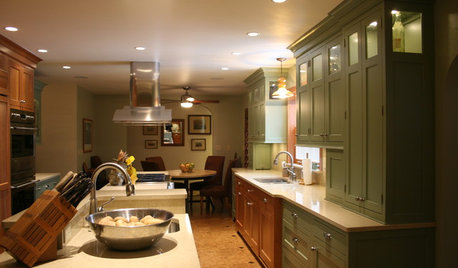
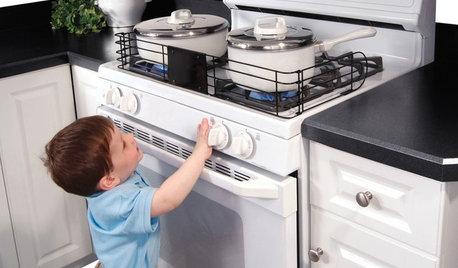

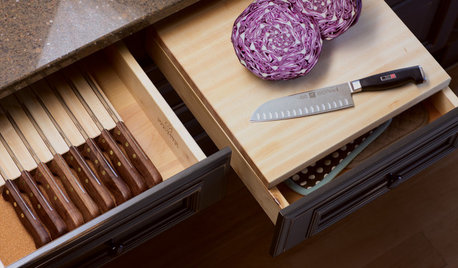
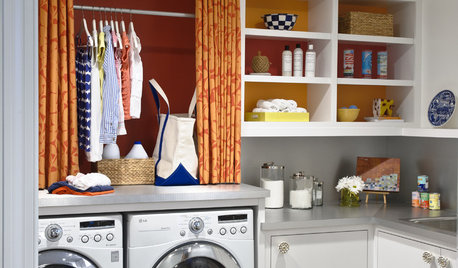






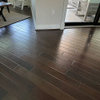
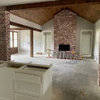
floorman67